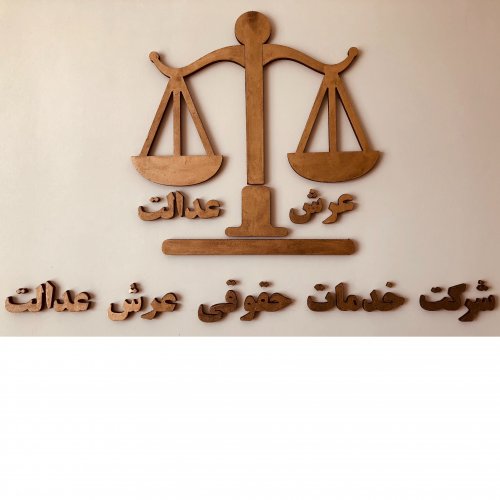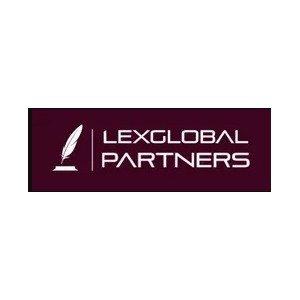Best Ethics and Professional Responsibility Lawyers in Afghanistan
Share your needs with us, get contacted by law firms.
Free. Takes 2 min.
Or refine your search by selecting a city:
List of the best lawyers in Afghanistan
About Ethics and Professional Responsibility Law in Afghanistan
In Afghanistan, Ethics and Professional Responsibility encompass the principles and standards governing the conduct of professionals in various fields. This area of law is pivotal in maintaining integrity, accountability, and professionalism across sectors such as legal, medical, educational, and governmental professions. The framework for ethical and professional conduct is designed to ensure that professional duties are performed with transparency, fairness, and respect for the rule of law.
Why You May Need a Lawyer
Individuals may require legal assistance in Ethics and Professional Responsibility in several situations, including:
- Violation Allegations: When accused of breaching professional codes or ethics.
- Employment Disputes: Conflicts arising from professional misconduct claims.
- Licensing Issues: Difficulties in obtaining, renewing, or retaining professional licenses due to ethical concerns.
- Whistleblowing: Guidance for those looking to report unethical practices while protecting themselves legally.
- Regulatory Compliance: Ensuring adherence to both local and international professional standards.
Local Laws Overview
The legal framework in Afghanistan concerning Ethics and Professional Responsibility is dictated by a combination of statutory laws, professional codes, and international standards to which Afghanistan is a signatory. Key aspects include:
- Professional Codes of Conduct: Specific guidelines for different professions, outlining expected behaviors and practices.
- Disciplinary Committees: Bodies established to investigate and adjudicate breaches of professional responsibility.
- Anti-Corruption Measures: Laws focusing on eliminating corruption in professional practices.
- Human Rights Considerations: Integration of human rights commitments into professional conduct regulations.
Frequently Asked Questions
What is the role of ethics in professional responsibility?
Ethics serve as the foundational principles that guide professionals in their responsibilities, ensuring conduct is aligned with moral and legal standards.
Are there specific ethics laws for each profession in Afghanistan?
Yes, many professions have distinct codes of ethics that address the unique responsibilities and challenges of their field.
What happens if a professional is found guilty of ethical violations?
Disciplinary actions can include fines, suspension, revocation of licenses, or legal action, depending on the severity of the violation.
How can professionals protect themselves against false allegations of ethical misconduct?
Maintaining comprehensive records of professional activities and adhering strictly to established codes of conduct can be protective measures.
Where can one report unethical practices by a professional in Afghanistan?
Reports can typically be made to relevant professional regulatory bodies or government offices responsible for overseeing professional conduct.
Can cultural norms influence ethical standards in Afghanistan?
Yes, local cultural practices and beliefs can impact perceptions of ethics, though laws strive to align more with universally accepted standards.
What is the process of disputing an ethical violation accusation?
Professionals typically have the opportunity to respond to allegations through hearings or appeals within the regulatory framework.
Are there any protections for whistleblowers in Afghanistan?
Yes, legal protections aim to safeguard those who report unethical practices from retaliation or legal repercussions.
What role do ethics committees play in professional responsibility?
Ethics committees oversee adherence to professional standards and provide guidance and rulings on ethical matters.
How are global ethical standards incorporated into Afghan professional regulations?
While local customs are considered, Afghanistan aligns many of its professional practices with international treaties and standards to ensure global compliance and respect.
Additional Resources
- Ministry of Justice: Provides information on legislative frameworks and ethics-related policies.
- Professional Associations: Each profession may have its own body offering guidance and oversight on ethical practices.
- Afghanistan Independent Human Rights Commission: Offers resources and support in relation to ethical adherence and human rights.
- Bar Associations: Specifically for legal professionals seeking guidance on ethical responsibilities.
Next Steps
If you believe you need legal assistance in Ethics and Professional Responsibility, consider the following steps:
- Identify the Issue: Clearly define the nature of the ethical concern or accusation.
- Consult a Specialist: Seek advice from a lawyer specializing in ethics or the relevant professional field.
- Gather Documentation: Collect all relevant documents, communications, and records related to the issue.
- Explore Mediation: Consider resolving disputes through mediation or arbitration where possible.
- Stay Informed: Keep abreast of any legal updates related to professional responsibility in Afghanistan that may affect your situation.
Lawzana helps you find the best lawyers and law firms in Afghanistan through a curated and pre-screened list of qualified legal professionals. Our platform offers rankings and detailed profiles of attorneys and law firms, allowing you to compare based on practice areas, including Ethics and Professional Responsibility, experience, and client feedback.
Each profile includes a description of the firm's areas of practice, client reviews, team members and partners, year of establishment, spoken languages, office locations, contact information, social media presence, and any published articles or resources. Most firms on our platform speak English and are experienced in both local and international legal matters.
Get a quote from top-rated law firms in Afghanistan — quickly, securely, and without unnecessary hassle.
Disclaimer:
The information provided on this page is for general informational purposes only and does not constitute legal advice. While we strive to ensure the accuracy and relevance of the content, legal information may change over time, and interpretations of the law can vary. You should always consult with a qualified legal professional for advice specific to your situation.
We disclaim all liability for actions taken or not taken based on the content of this page. If you believe any information is incorrect or outdated, please contact us, and we will review and update it where appropriate.
Browse ethics and professional responsibility law firms by city in Afghanistan
Refine your search by selecting a city.









